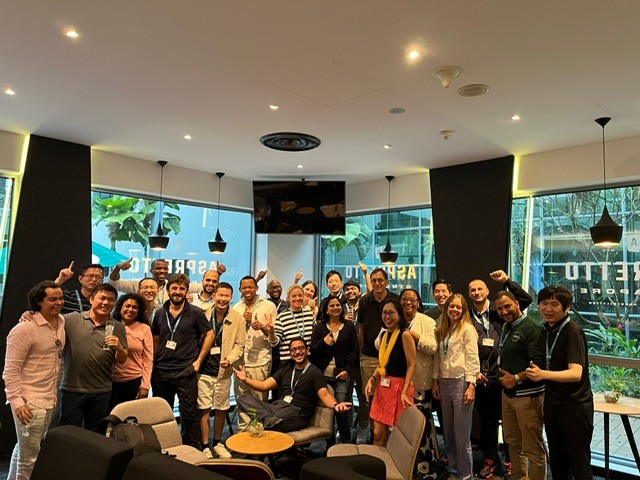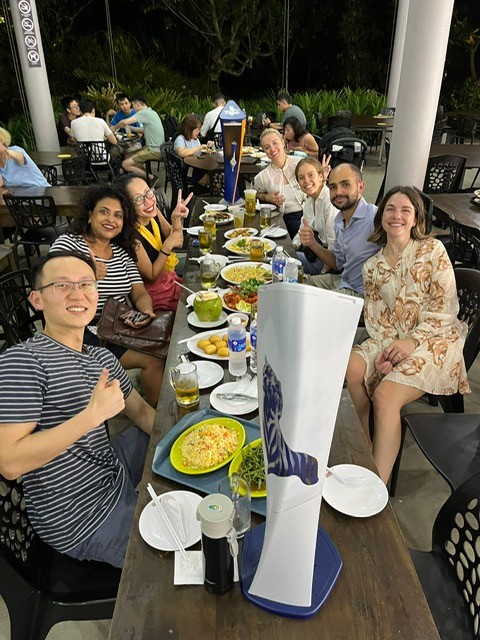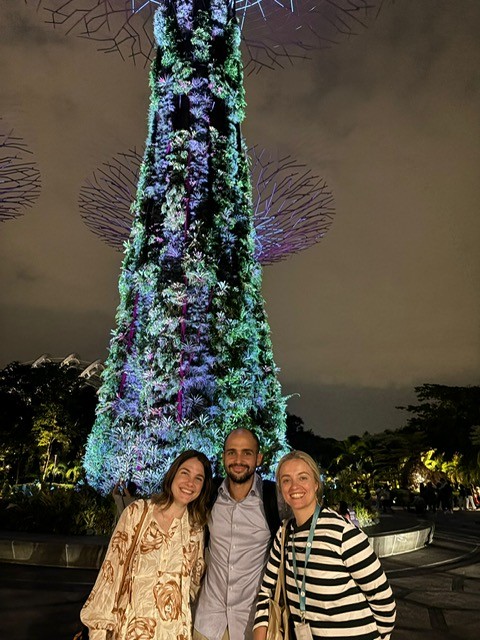I find that the EMFin programme focuses on how the learnings impact the world and the financial sector. It has given me tangible points that I can take away to apply in my own career.
Toni Beattie

Tell us a bit about what you are currently doing.
I’m Vice President in the investment banking team at Macquarie Capital based out of Auckland, New Zealand. My responsibilities include overseeing deal execution, leading financial analysis and advising clients on mergers and acquisitions, capital raisings and other major strategic transactions.
What made you want to embark on INSEAD’s Executive Master in Finance (EMFin) programme?
Starting out in investment banking, the learning curve was really steep. So, once I had some experience under my belt, I really wanted to deepen my understanding of different aspects of finance. I wanted to learn more about the areas that I don’t touch day-to-day in my role, as well as to gain a more global perspective on my industry and adjacent industries.
The EMFin programme was an easy choice because of its interesting curriculum, and INSEAD’s strong reputation among people in the finance industry as well as alumni.
For me, it was also an opportunity to get to meet other like-minded people with similar expertise.
While looking for a suitable finance programme, what were some of the things about the EMFin programme that stood out for you?
I think one thing that stood out for me was the electives module in Fontainebleau – being able to choose electives I was interested in, and to even come back after the programme to take other electives was a pretty incredible differentiator.
I also found the application process really valuable as it helped me to reflect on my career so far, to think about my goals and where I wanted to go, and how I saw EMFin playing a role in all of that.
Overall, the setup of the modules (six 2-week in-person modules spread out over 1.5 years) also worked really well for me, in terms of being able to manage my studies while also staying on top of the sometimes long hours I work in investment banking.
You’ve now gone through two of the six modules. How has the experience been?
It’s been intense but in a really rewarding way. There’s just so much to learn, and at every stage there are real life applications and case studies to provide real-life context. Unlike some of my previous studies which have been more theoretical in nature, I find that the EMFin programme focuses on how the learnings impact the world and the financial sector. It has given me tangible points that I can take away to apply in my own career.
The faculty is world-class.
They are clearly experts in their field but are at the same time very passionate about what they do. A lot of the conversations in class have been quite informal, and I think the professors have done an amazing job in dealing with a class of students from many different fields, who have been really testing and probing their knowledge.
I also really appreciate the geographical diversity of the faculty. For example, one of our professors who is based in Fontainebleau, has been flying down regularly to Singapore just to teach us. There aren’t many places in the world where you get to enjoy that kind of experience and commitment.

Have you been able to apply any of your learnings from the EMFin programme into your job so far?
Despite having seven years’ experience as an investment banker, there are still so many areas of finance that I haven’t even scratched the surface on.
In my day-to-day, I’m very familiar with corporate finance, but have less experience on some aspects of the capital markets side so the depth of knowledge that I’ve been able to get up to speed on in this area has been priceless. It’s enabled me to better understand how the different areas of finance can come together, and it’s given me a huge confidence boost.
The programme has also helped me to look at things from a more holistic perspective. For instance, when I’m providing advice to clients, I’m now considering a broader scope of tools that can deliver a better solution, such as debt or structured equity. I think just knowing what kind of questions to ask has also been hugely valuable.
What are your career aspirations, and how do you see EMFin helping you to get there?
I look forward to taking on more strategic responsibilities at Macquarie. I’m really focused on building our business here in New Zealand, improving our offering to clients and doing what I can to make better products and grow our business.
Beyond what I’m taking away from the coursework, I also really appreciate the diverse mix of participants in the programme. There are almost 30 of us in the class, representing 19 nationalities. Having such a broad representation allows us to go deep into discussions about geopolitics and economic environments across different countries. I get to compare notes about which industries are similar or different, and gain valuable insights which help me to apply a more global lens to my market here in New Zealand and Australia.

How supportive has your employer been towards you taking the EMFin programme?
My employer Macquarie, has been incredibly supportive with sponsoring my INSEAD journey. This has included providing me with time off work, so that I can really clear my plate and dedicate myself to the programme. Their support has been instrumental in allowing me to get the most out of EMFin, so I’m really grateful for that.
Macquarie has actually promoted the EMFin programme to its employees for quite a while now. It was something that I first heard about when I was recruited into Macquarie. So, I’ve kind of kept it in my back pocket, until now when I feel that at this stage of my career, it’s the right time to do it.
How have you managed to balance between work, studies and personal time?
It can be challenging at times, but certainly doable with good time management. Obviously, I’ve been incredibly lucky with support from Macquarie and my family. But I also have to constantly remember to stay organised, so that I can fully benefit from the programme.
The way the modules are structured has been ideal for me in managing the workload.
It allows me to immerse myself and have these intensive learning periods on campus and then have the time afterwards to apply the knowledge in my work.
In between modules, I also have time to prepare for the next module through readings and getting started on the capstone project from the next module. It’s not the same intensity as on campus, but it’s enough to ensure that the ideas and learning are still continuing.

What advice do you have for others considering joining INSEAD’s EMFin programme?
It’s definitely a worthwhile experience. It’s rigorous but you also get the appropriate downtime in between modules to focus on work and life and other things.
The networking opportunities and the ability to invest in your own personal journey in different ways is frankly unparalleled.
You will get what you put in, so really lean into the opportunities that are presented and make sure you fully participate actively in class discussions. You should also invest in building up relationships with your classmates, who are an important lifelong network.
Do also leverage the faculty that are there. If there are particular areas of finance that interest you, do have those discussions, because the professors have all proven to be incredibly helpful and keen to discuss areas above and beyond the curriculum.




